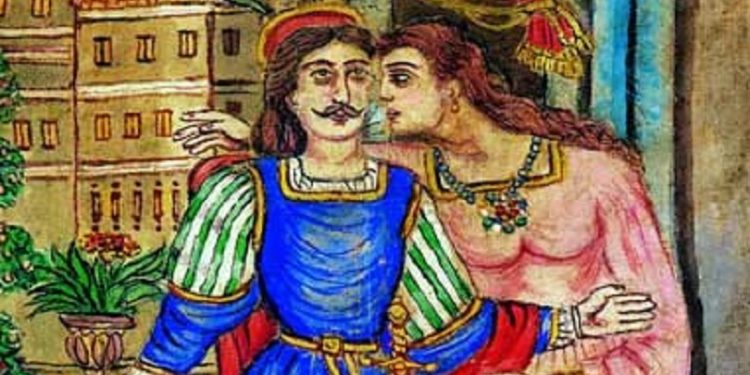
If there ever was a most compelling Greek musical work about love and its torments then Erotokritos is definitely it. The Medieval masterpiece, one of Crete’s longest poems, has stood the test of time and still soothes the wounds of the brokenhearted with as much gentleness as it did centuries ago.
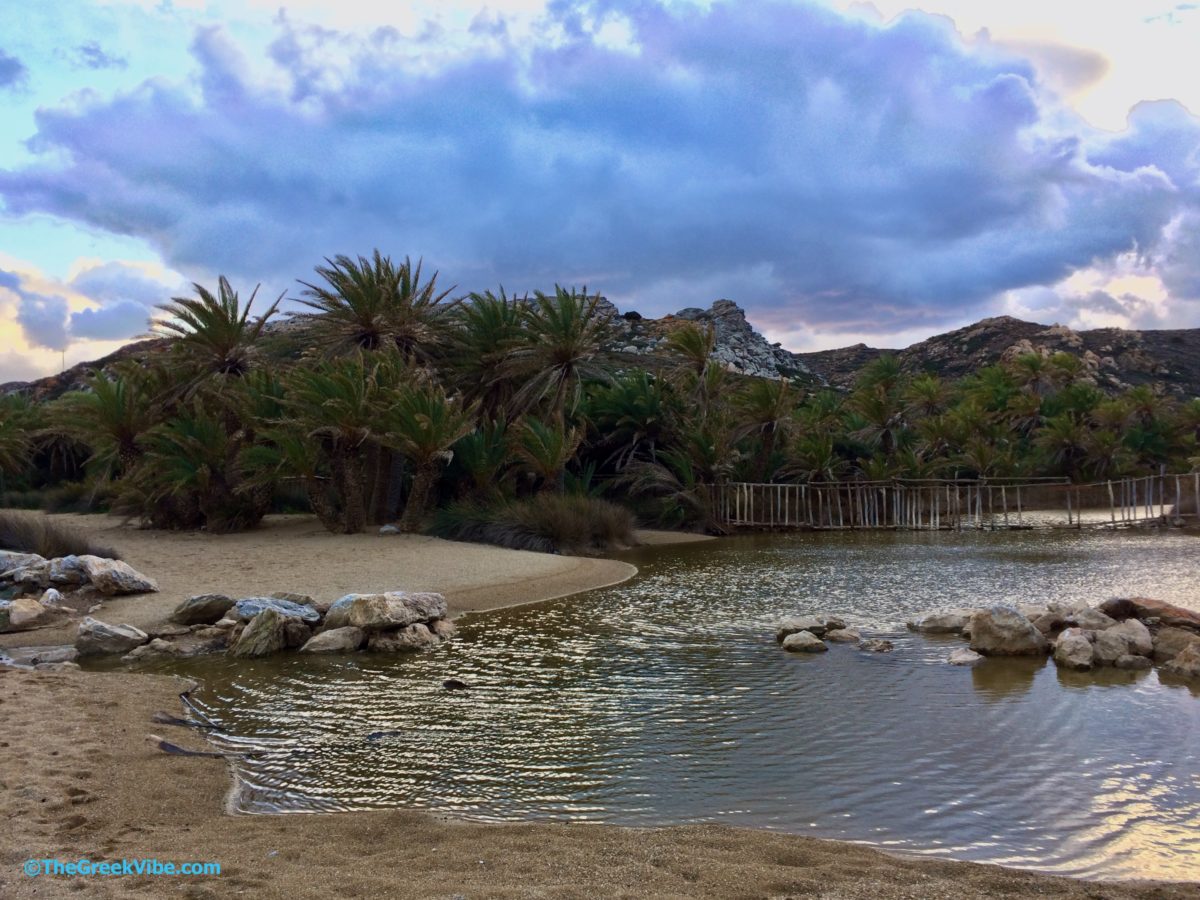
Erotokritos is an epic poem written in the 17th century by Cretan poet Vitsentzos Kornaros. The 10,000-line poem penned in Cretan dialect in 15-syllable rhyming verse (mantinada) speaks of undying devotion and elevates love to the highest level as it unravels through the romance of Erotokritos and Aretousa.
Born in Crete’s Sitia in 1553 to a noble family, Kornaros is considered to be the island’s greatest poet and one of the country’s most influential.
❤️ The word “mantinada” derives from the Italian word “mattinata” which means “daybreak” and “canto”(or “cantata”) – a morning song sung to a lover under their window.
A Saga of Love
The multiverse saga of love brings together influences from Greek mythology, the Renaissance and Cretan culture, which, through the centuries, has come to mould its lasting spirit. The first printed version of the poem was issued in 1713 in Venice.
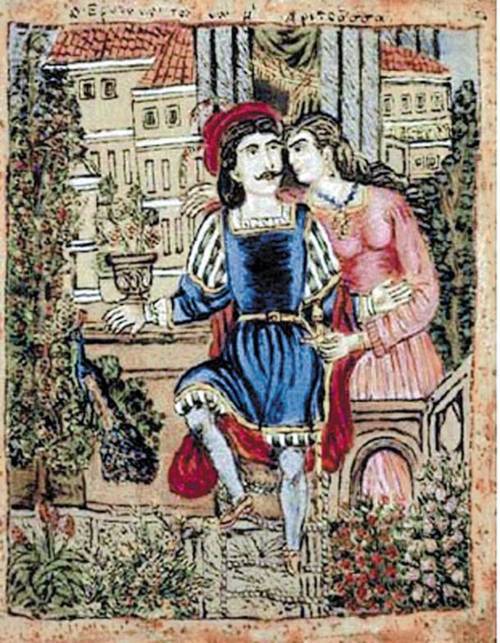
Every Greek performer – musician or singer – who takes pride in his heritage has at least once in his career interpreted Erotokritos. The latest endeavor highlighting the work’s timeless excellence features 77 Greek performers who from 40 locations in Attica leave their distinct mark on the epic poem. The goal of the multi-artist project was to demonstrate that music has the power to inspire and to unite people for a common cause.
Erotokritos, which means “Cupid’s favorite“, and Aretousa (the virtuous one) love each other but Aretousa’s father, the king, will have none of it. To ‘cure’ his daughter of love’s ‘blindness’ he sends her to prison and the love-stricken boy into exile. Verse upon verse, Kornaros employs the power of poetry to tell a tale of loss, longing and desperation. Unlike Romeo and Juliet, Erotokritos comes to a fortunate close when the enamored re-unite and vow eternal happiness.
👉🏼 The best hotel deals on Crete for you!
Erotokritos is undeniably the most far-reaching poem in Modern Greek literature, conveying through verse and music the timelessness of the virtues a culture holds dear.
►Celebrating Agios Yakinthos – Greece’s Saint Valentine- On Crete
Nature of the Cretan Soul
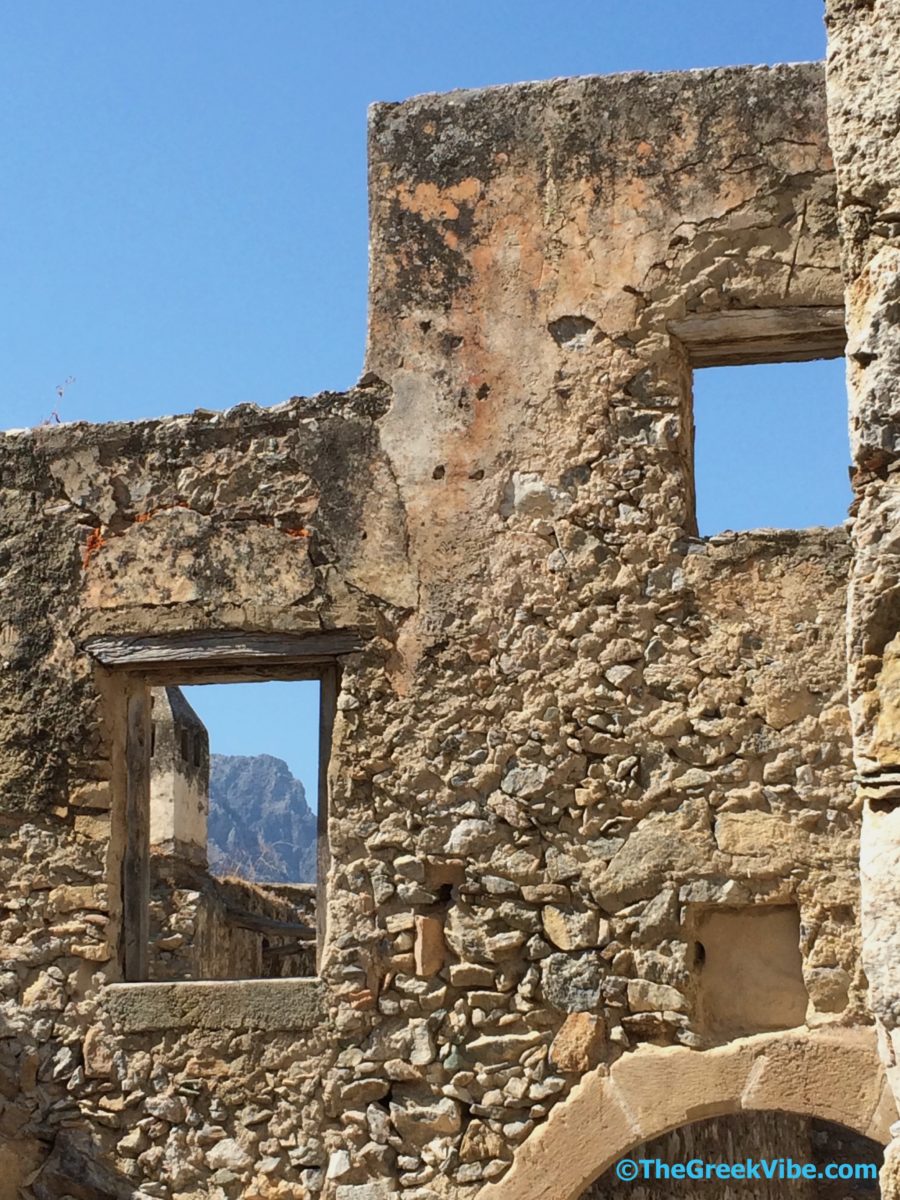
The haunting almost lamenting lyre is spellbinding. And the verse of courage, love, dedication and selflessness embodies the very nature of the Cretan and thus the Greek psyche (soul).
Cretan lyre player Georgia Dagaki is one of the younger generation performers delivering here a compelling rendering of the work and one of the few females to do so.
A striking delivery by the great Cretan lyre player, Kostas Mountakis, with Katerina Roukounaki.
A powerful rendering by rocker Vassilis Papakonstantinou with Dagaki.
And a beautiful lyrical delivery of the great Cretan poem of love by Loudovikos ton Anogeion and his singing mandolin.
► The Enduring Legacy of the Authentic Cretan Knife
Below in a moving performance by a non-Greek “Greek”, Cretan lyre virtuoso, Irishman Ross Daly, who has made Crete his home for the past 35 years. Rippling lyricism.
Here, Cretan-born thespian Manos Katrakis recites the poem.
On a final note, a very inspiring take on the tale was initially delivered by four Cretan musicians in the village of Anogeia during the Yakintheia Festival (dedicated to Agios Yakinthos, the patron saint of love who is celebrated on July 3rd). Yiorgos Koumentakis, Loudovikos ton Anogeion, Nikos Xydakis and Psarantonis delved into Erotokritos, dressing it with the sounds of their childhood dreams, adolescent desires and adult passions. The remarkable result? Erotokritos – Four Approaches to the Cretan Medieval Romance. Here featuring Cypriot singer Alkinoos Ioannidis.
► Discovering the Best of Crete in Authentic Sitia

Erotokritos has throughout time served as an undying source of inspiration for many a Greek poet including Kostis Palamas, Kostas Krystallis and George Seferis as well as Dionysios Solomos, who wrote the “Hymn to Liberty”, Greece’s national anthem.
I would like to conclude with a time-relevant note by Greek Nobel laureate Seferis, who says that true love, honor, friendship and courage – all praised in the verse of Erotokritos – have shaped the Greek character and …
“The fate of a nation. Always on the borderline of place and time, always preparing for a time of brilliance, always threatened by disaster…”.
Giorgos Seferis
♪Theodore Stephanides (in verse) and Betts, Gauntlett and Spilias (in prose) offer a complete English translation of the work.
👉🏼 Dream of visiting Greece? Start planning
♫ And I end today’s post, with the most moving rendering – in my opinion – of all: with the evocative voice of the great Cretan Nikos Xylouris.
Be well. Travel!
Enjoyed this Post? Share and Pin it!
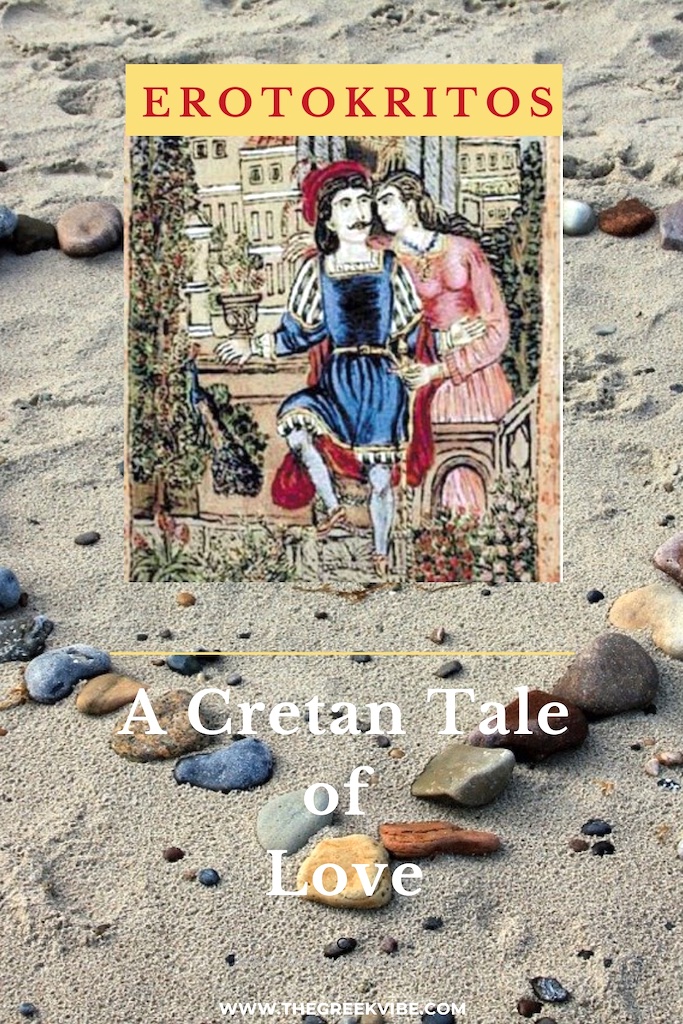

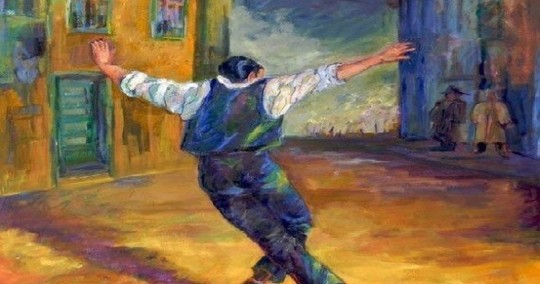

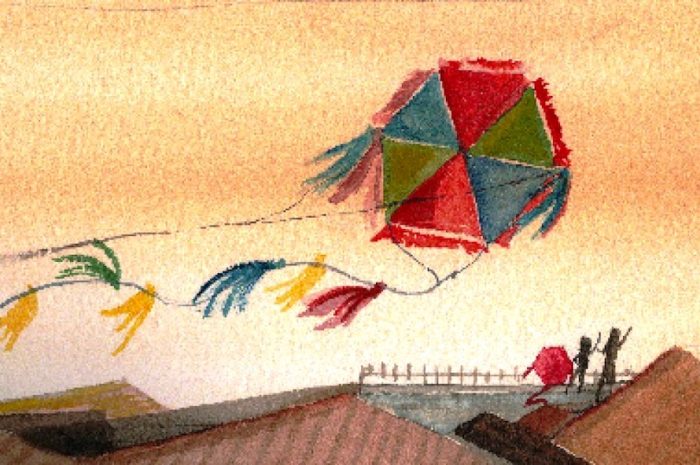
Wonderful story! Great song with all 77 artists! I just listened to the whole thing on YouTube I noticed it has 1.4M views!!!
Thank you! Indeed a beautiful Cretan song that still works great today!